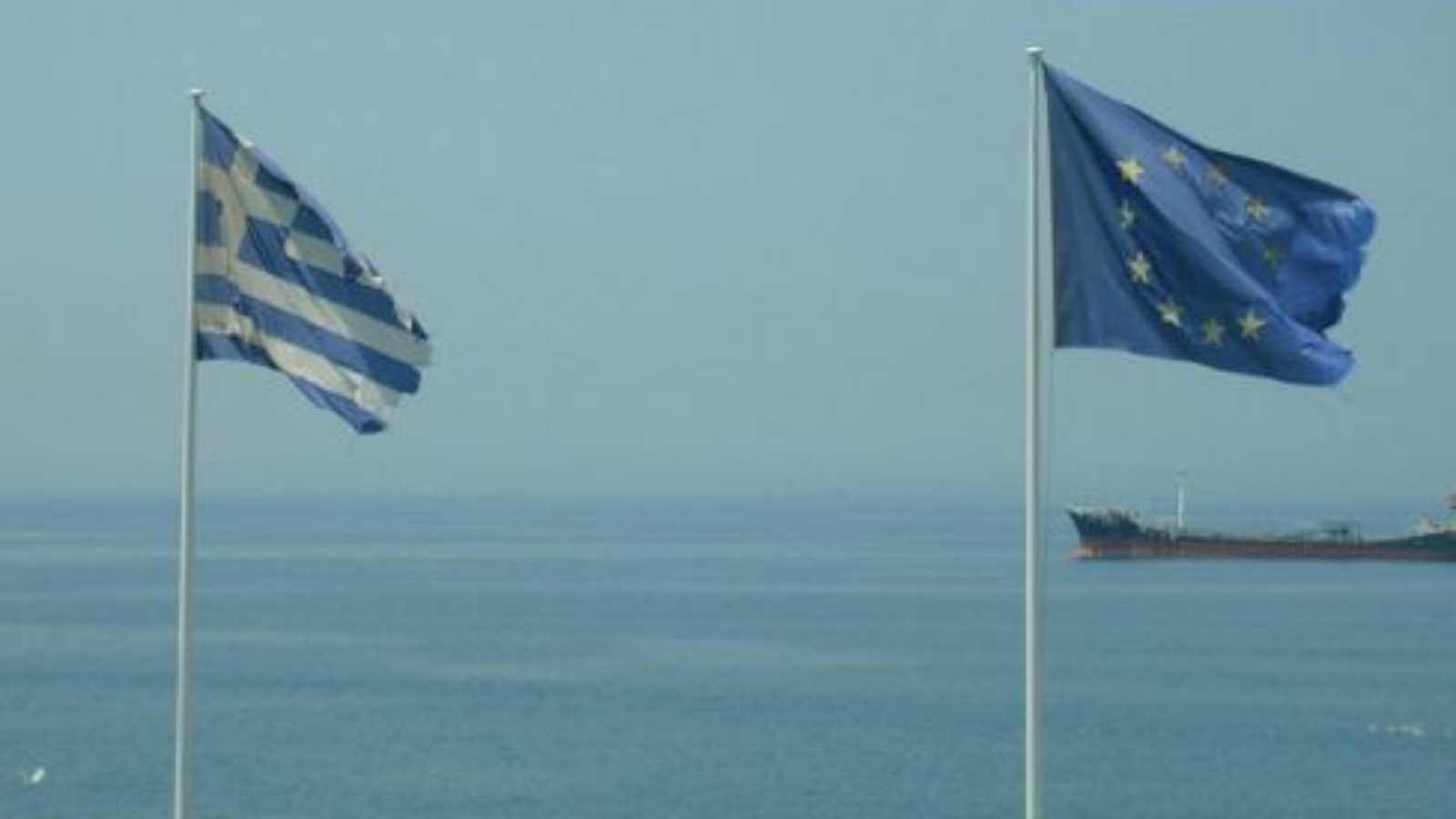Around the World
Teetering on the brink of insolvency, Greece approved a bailout package with a series of new austerity measures guaranteed to heighten financial fears for millions of Greek citizens. Reflecting on last week’s summit, Peter Atwater explains how Greece’s constant peril not only threatens its own political security, but also that of the entire European Union.
 And after months of tense negotiations, Secretary of State John Kerry and Iranian Foreign Minister Mohammad Javad Zarif agreed on a historic nuclear deal this week. Jonathan Cristol argues that, however flawed, the deal paves the way for a U.S.-Iranian partnership that can help stabilize the Middle East.
And after months of tense negotiations, Secretary of State John Kerry and Iranian Foreign Minister Mohammad Javad Zarif agreed on a historic nuclear deal this week. Jonathan Cristol argues that, however flawed, the deal paves the way for a U.S.-Iranian partnership that can help stabilize the Middle East.

Around the Institute
With the summer underway, we are already starting to look forward to a full program for the fall. It’s your support that makes our work possible and as we look back on what has been an exciting year at World Policy, we hope that you will make your tax deductible contribution today.
• Partnership with Loyola Marymount University: This spring, we announced the creation of the World Policy Institute at LMU, a first of its kind, interdisciplinary research and academic center.
• Delegation to Cuba: In May, the Institute’s Board of Directors embarked on an exploratory trip to Cuba to open a dialogue with Cuban leaders, collaboratively examine the achievements of 55 years of revolutionary society, and explore ways the U.S. and Cuba can learn from and work with each other.
• Bard Globalization and International Affairs Program: Earlier this year, we welcomed the Bard Globalization in International Affairs (BGIA) Program to our Bryant Park offices.
• Events: We kicked off 2015 with a private briefing from Ian Bremmer. Since then, we have hosted leaders such as former President of Mexico Vicente Fox as part of the Walter Eberstadt World Economic Policy Program, as well as an exclusive Arctic Roundtable with the Premier of Quebec Philippe Couillard.
These programs are a crucial part of our efforts to bring a fresh perspective to the policymaking table, and we are thrilled to offer these opportunities to our members. World Policy Membership offers a number of benefits and puts you at the center of our community of professionals engaged in innovative, solution-oriented dialogues on crucial global challenges. Your support is essential to making our programs and events possible, and we hope you will consider making your tax-deductible gift today.
Fellow Updates
Alon Ben-Meir, in an article for The Huffington Post, offers suggestions for how the Israeli and Palestinian governments can pursue a two-state solution through a series of confidence-building measures.
Lawrence Gutman, in his latest for The Cuban Reset, counters major skepticism from U.S. Republicans over Cuba’s capability to build a diversified, equitable economy.
James H. Nolt, in his blog for Polarizing Political Economy, explores China’s economic success, arguing it poses no immediate threat to Western superpowers due to its largely inferior military complex.
*****
*****
Don’t forget to sign up for our weekly newsletters to find out the latest from the pages and website of World Policy Journal. Whether your interests are in emerging markets, the environment, urban informality, or just the most insightful perspectives on global events from across the world, World Policy has you covered. Subscribe today!
[Photos courtesy of Wikimedia Commons]
